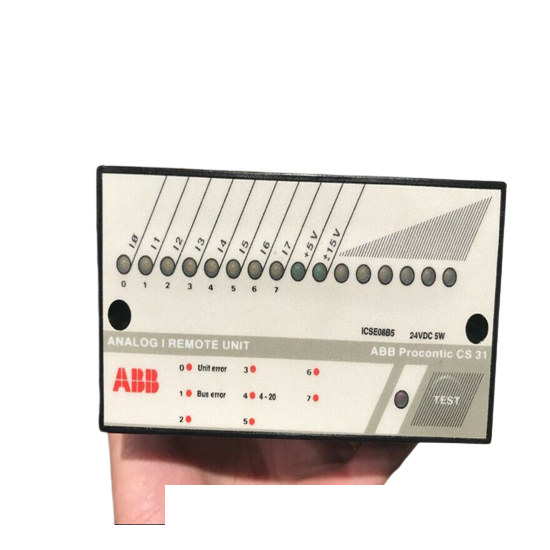The ABB ICSE08B5 FPR3346501R1012 DCS Module is designed for seamless integration into complex industrial control systems, offering unparalleled precision and reliability for critical automation tasks.
The ABB ICSE08B5 FPR3346501R1012 DCS Module is designed for seamless integration into complex industrial control systems, offering unparalleled precision and reliability for critical automation tasks.
 WhatsApp
WhatsApp
Module Type:Digital Control System
Model Number:ICSE08B5 FPR3346501R1012
Operating Voltage:24V DC
Input Current:10mA
Output Capacity:2A
Communication Protocol:Modbus TCP/IP
Environment Compatibility:IP65, -20°C to +55°C
Installation Type:Panel-Mountable
Weight:0.3kg
The ABB ICSE08B5 FPR3346501R1012 DCS Module is engineered for precision and reliability in demanding industrial environments. Its robust design allows for seamless integration into complex control systems, enhancing operational efficiency and safety.
Featuring an advanced communication protocol, this module facilitates smooth data exchange between diverse components, supporting a wide range of industrial applications. Its compatibility with Modbus TCP/IP ensures compatibility with leading automation systems.
Equipped with high-capacity input and output capabilities, the ICSE08B5 can handle extensive control tasks, enabling precise monitoring and control of industrial processes. The 10mA input current ensures accurate data acquisition, while the 2A output capacity supports powerful actuation.
Adaptable to various environmental conditions, the module is rated for IP65 protection against dust and water ingress, and operates within a temperature range of -20°C to +55°C. This makes it suitable for outdoor or harsh industrial settings.
Designed for easy installation, the panel-mountable design minimizes space requirements and simplifies system integration. The compact size and lightweight construction ensure minimal impact on system layout and facilitate maintenance.
Optimized for energy efficiency, the ABB ICSE08B5 FPR3346501R1012 DCS Module is designed to reduce operational costs and enhance system longevity. It seamlessly integrates with existing infrastructure, offering a cost-effective upgrade option for modernization projects.
